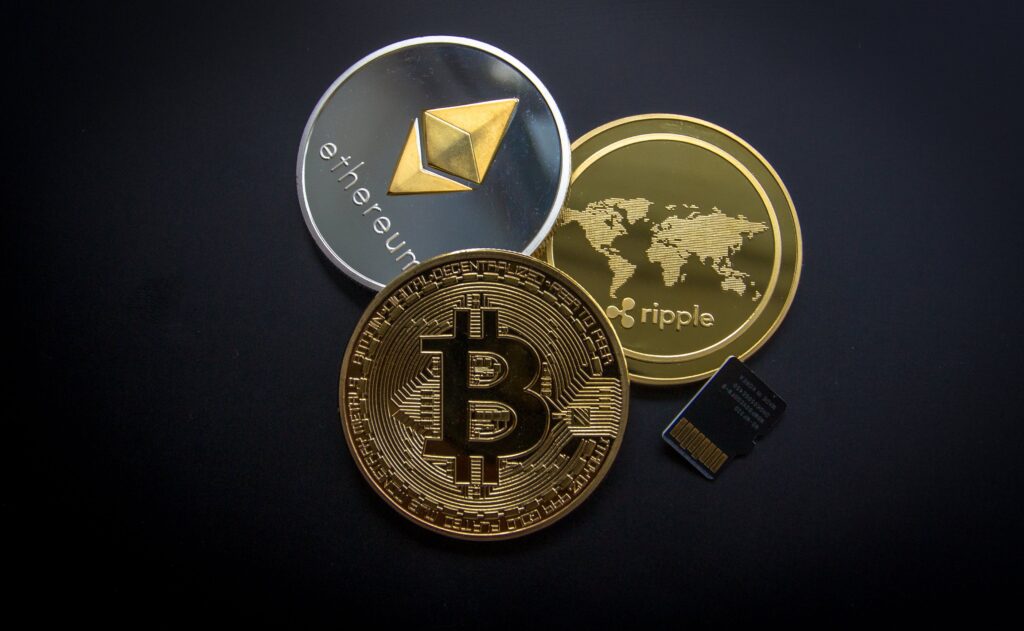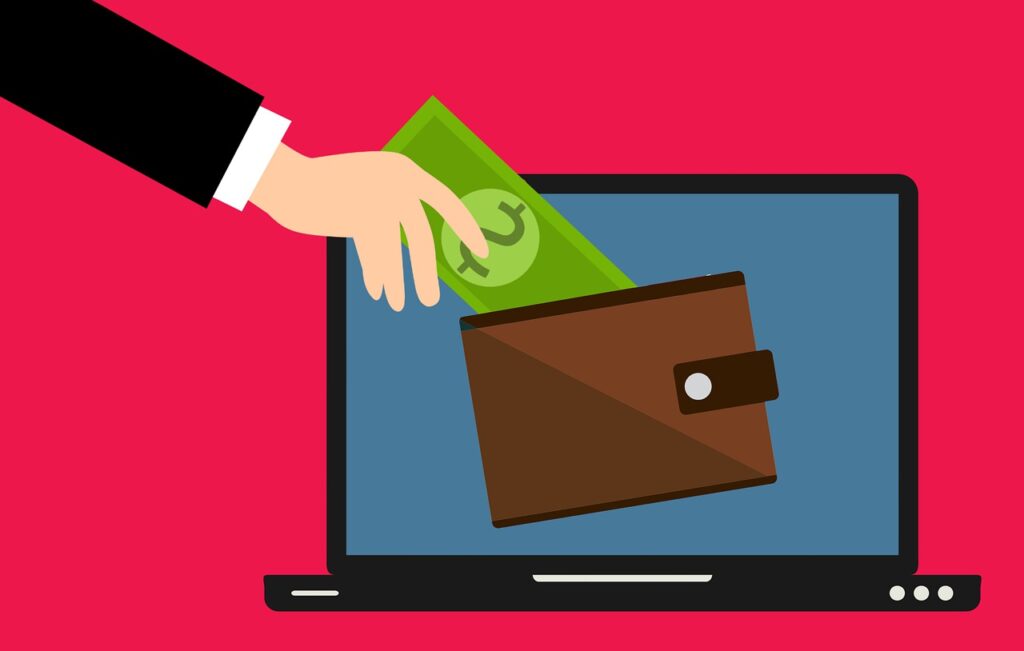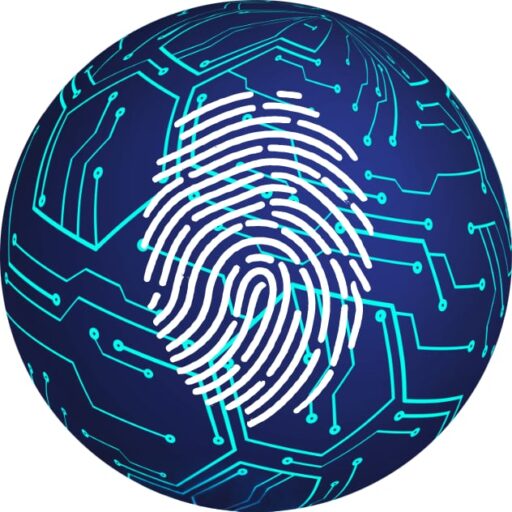Table of Contents
Intro

Welcome aboard, crypto beginners! If you’ve been hearing a lot about cryptocurrency, digital currencies, and the mysterious world of blockchain, you’re not alone. With the rise in popularity of cryptocurrencies like Bitcoin, Ethereum, and Litecoin, it’s hard to ignore the buzz around these digital assets. However, for those new to the game, navigating the complex waters of crypto can be overwhelming. That’s why we’ve put together this beginner’s guide to help you understand the basics of digital currencies and how they work. So grab your life vest and let’s dive into Crypto 101.
Understanding the Basics of Digital Currencies

Welcome to the exciting world of digital currencies! In this section, we will explore the basics of digital currencies and provide you with a solid foundation to navigate this ever-evolving landscape.
At its core, a digital currency is a form of currency that exists only in digital or electronic form. Unlike traditional fiat currencies, which are issued and regulated by central banks, digital currencies operate on decentralized networks. This means that transactions are recorded on a public ledger called the blockchain, which ensures transparency and security.
One of the most well-known digital currencies is Bitcoin, which was created in 2009. Bitcoin, along with other cryptocurrencies like Ethereum and Litecoin, uses cryptography to secure transactions and control the creation of new units. This process is known as crypto mining, where powerful computers compete to solve complex mathematical problems in order to validate transactions and add them to the blockchain.
Crypto mining is an essential component of digital currencies, as it maintains the integrity and security of the network. However, it is important to note that crypto mining requires substantial computational power and energy consumption. As a result, mining has become a specialized industry, with mining farms and mining pools dominating the scene.
To participate in the world of digital currencies, you will need a digital wallet. A digital wallet is a software application that allows you to securely store, send, and receive digital currencies. There are various types of digital wallets available, including web-based wallets, desktop wallets, and hardware wallets. Each has its own advantages and security considerations, so it’s important to choose the one that best fits your needs.
As you explore the world of digital currencies, it’s crucial to understand the risks and rewards of investing in cryptocurrencies. The cryptocurrency market is highly volatile and can experience significant price fluctuations in short periods of time. It is essential to conduct thorough research, stay informed about market trends, and consider factors such as regulatory developments and technological advancements.
The Blockchain: The Backbone of Digital Currencies

Welcome to the fascinating world of blockchain, the backbone of digital currencies. In this section, we’ll explore how blockchain technology works and why it is the foundation of cryptocurrencies like Bitcoin, Ethereum, and Litecoin.
At its core, the blockchain is a decentralized and transparent public ledger that records all transactions of a digital currency. Think of it as a digital database that stores information in a series of blocks, with each block containing a set of transactions. These blocks are then linked together in a chain, hence the name “blockchain.” What makes blockchain unique is that it is maintained and updated by a network of computers called nodes, rather than a central authority.
One of the key features of blockchain technology is its immutability. Once a transaction is recorded on the blockchain, it cannot be altered or tampered with. This provides a high level of security and ensures the integrity of the digital currency. Additionally, the transparency of the blockchain allows anyone to verify transactions, promoting trust and eliminating the need for intermediaries.
Blockchain technology also enables peer-to-peer transactions without the need for a trusted third party, such as a bank. This removes barriers and reduces transaction costs, making it an attractive option for cross-border payments and remittances. Furthermore, blockchain has the potential to revolutionize industries beyond finance, including supply chain management, healthcare, and voting systems.
As the backbone of digital currencies, the blockchain plays a crucial role in maintaining the integrity and security of the network. Each transaction is verified by miners, who compete to solve complex mathematical problems. Once a problem is solved, the transaction is added to the blockchain, and the miner is rewarded with a certain amount of digital currency.
Making Sense of Cryptocurrency Mining

Cryptocurrency mining may sound like a complex and mysterious process, but once you understand the basics, it’s not as daunting as it seems. In this section, we’ll break down the concept of cryptocurrency mining and help you make sense of it all.
At its core, cryptocurrency mining is the process by which new digital currency units are created and transactions are verified on the blockchain. Miners use powerful computers to solve complex mathematical problems, and when a problem is solved, a new block is added to the blockchain and the miner is rewarded with a certain amount of digital currency.
But why do miners go through all this trouble? Well, besides the reward, mining plays a crucial role in maintaining the integrity and security of the cryptocurrency network. By solving these mathematical problems, miners ensure that transactions are valid and cannot be tampered with. This decentralized approach eliminates the need for a central authority and makes the network more resistant to fraud and attacks.
The mining process involves a significant amount of computational power and energy consumption. As a result, mining has become a specialized industry, with large mining farms and mining pools dominating the scene. These operations have the resources to invest in powerful hardware and compete for block rewards more efficiently.
If you’re interested in getting involved in cryptocurrency mining, there are a few things to consider. First, you’ll need to choose the right cryptocurrency to mine. Some popular options include Bitcoin, Ethereum, and Litecoin, but there are many others to choose from. Each cryptocurrency has its own mining algorithm, hardware requirements, and potential rewards, so it’s important to do your research and find the best fit for you.
Next, you’ll need to consider your hardware setup. Mining can be done with CPUs (central processing units), GPUs (graphics processing units), or specialized mining hardware called ASICs (application-specific integrated circuits). The choice of hardware will depend on the specific cryptocurrency you’re mining and your budget.
It’s also worth noting that as more people get involved in mining, the difficulty of the mathematical problems increases. This means that you’ll need more computational power to compete and earn rewards. So it’s important to stay up to date with the latest mining trends and consider factors such as electricity costs and the potential return on investment.
Grasping the Concept of Digital Wallets

Welcome to the world of digital wallets! In this section, we’ll dive into the concept of digital wallets and how they play a crucial role in managing your digital currencies.
So, what exactly is a digital wallet? Think of it as your virtual bank account for your digital currencies. Just like a traditional wallet holds your cash and cards, a digital wallet stores your digital assets securely. It’s a software application that allows you to securely store, send, and receive digital currencies.
There are various types of digital wallets available, each with its own unique features and security considerations. Let’s explore a few of the most common types:
1. Web-based wallets: These wallets are accessible through a web browser and are usually provided by cryptocurrency exchanges. They offer convenience as you can access them from any device with an internet connection. Popular web-based wallets include Fidelity Crypto, Kraken Crypto, and Gemini Crypto.
2. Desktop wallets: These wallets are installed on your computer and provide you with full control over your digital assets. They are more secure than web-based wallets as they are not susceptible to online threats. Some popular desktop wallets include FTX Crypto and Luno Trading.
3. Hardware wallets: Considered the most secure option, hardware wallets are physical devices that store your private keys offline. They offer an extra layer of protection as they are immune to malware attacks. Ledger Nano S and Trezor are examples of popular hardware wallets.
4. Mobile wallets: These wallets are installed on your smartphone, allowing you to conveniently manage your digital assets on the go. Some mobile wallets also offer additional features like in-app cryptocurrency trading and free crypto giveaways. Robinhood Crypto and Crypto.com are popular mobile wallet options.
When choosing a digital wallet, it’s essential to consider factors such as security, ease of use, and the specific features that matter to you. Additionally, make sure to do your research and read reviews to ensure you choose a reputable and trusted wallet provider.
Remember, it’s crucial to keep your digital wallet safe and secure. Set up strong passwords, enable two-factor authentication, and keep your wallet software updated to protect against potential security breaches.
So now that you have a better understanding of digital wallets, it’s time to choose the one that best fits your needs. Happy wallet hunting!
Investing in Cryptocurrencies: The Risks and Rewards

Investing in cryptocurrencies can be an exciting and potentially lucrative venture. However, it’s important to understand the risks and rewards associated with this emerging asset class. In this section, we’ll explore the key factors to consider before diving into the world of cryptocurrency investment.
Let’s start with the risks. One of the main risks of investing in cryptocurrencies is the high volatility of the market. Cryptocurrency prices can fluctuate wildly in a short period of time, making it a potentially risky investment. It’s not uncommon to see significant price swings, which can result in substantial gains or losses. Therefore, it’s crucial to only invest what you can afford to lose and be prepared for the possibility of price volatility.
Another risk to consider is the lack of regulation and oversight in the cryptocurrency market. Unlike traditional financial markets, the crypto space is still relatively new and less regulated. This means that there is a higher risk of fraud, scams, and market manipulation. It’s important to thoroughly research any cryptocurrency or project before investing and to be cautious of any promises of guaranteed returns or unrealistic claims.
Additionally, cybersecurity risks are a major concern in the cryptocurrency world. The decentralized nature of cryptocurrencies makes them vulnerable to hacking and theft. It’s essential to take appropriate security measures, such as using secure wallets and enabling two-factor authentication, to protect your digital assets.
Despite the risks, there are also potential rewards to be gained from cryptocurrency investment. Cryptocurrencies have the potential to provide substantial returns on investment, especially if you invest in the right projects at the right time. Some cryptocurrencies have seen exponential growth in value, making early investors millionaires.
Moreover, cryptocurrency investment offers the opportunity to participate in the development of innovative technologies and disrupt traditional industries. Blockchain technology, which underpins cryptocurrencies, has the potential to revolutionize sectors such as finance, supply chain management, and healthcare.
If you’re considering investing in cryptocurrencies, it’s important to do thorough research and stay informed about market trends. Understand the fundamentals of the projects you’re investing in and consider factors such as the team behind the project, the technology they’re using, and the potential for real-world adoption. It’s also a good idea to diversify your investment portfolio and not put all your eggs in one basket.
Lastly, consider seeking advice from experienced investors or financial advisors who have a deep understanding of the cryptocurrency market. They can provide valuable insights and help you make informed investment decisions.
Regulation and Legality of Digital Currencies

As you navigate the exciting world of digital currencies, it’s important to understand the regulations and legal considerations surrounding this emerging asset class. Cryptocurrencies exist in a complex and evolving regulatory landscape, with different countries and jurisdictions taking varying approaches.
One of the key challenges in regulating digital currencies is their decentralized nature. Traditional financial systems are built on centralized institutions, such as banks and governments, that oversee and regulate transactions. However, cryptocurrencies operate on decentralized networks, making it difficult for any single authority to exert control.
The regulatory approach to cryptocurrencies varies from country to country. Some countries have embraced cryptocurrencies and blockchain technology, seeing them as a way to foster innovation and economic growth. These countries have implemented clear regulatory frameworks to ensure consumer protection and prevent illicit activities. Other countries have taken a more cautious approach, with stricter regulations and even bans on cryptocurrencies.
In terms of legality, cryptocurrencies are generally considered legal in most countries. However, there are exceptions. Some countries have outright banned cryptocurrencies, citing concerns about money laundering, fraud, and tax evasion. It’s important to research and understand the legal status of cryptocurrencies in your country or jurisdiction before getting involved in crypto trading or investing.
Another aspect to consider is taxation. In many countries, cryptocurrencies are subject to taxation, just like any other form of property or investment. It’s crucial to understand your tax obligations when it comes to crypto trading, cyptocurrency investing, and crypto apps. Keep track of your transactions, including buying and selling crypto, as well as any gains or losses. There are also specialized crypto tax platforms available that can help you calculate and report your crypto taxes accurately.
When it comes to crypto trading, it’s important to choose a reputable and reliable crypto exchange. Look for platforms that have a strong track record, robust security measures, and a wide range of cryptocurrencies available for trading. Research the best crypto trading platforms and consider factors such as fees, liquidity, and user experience.
As the crypto market continues to evolve, so do the regulations and legal considerations. Stay informed about any regulatory developments in your country or jurisdiction, as well as industry best practices. Understanding the regulations and legality of digital currencies will help you navigate the crypto seas with confidence.
The Future of Digital Currencies

As we dive into the world of digital currencies, it’s impossible not to ponder the future of this ever-evolving landscape. The future of digital currencies holds immense potential and exciting possibilities. While we can’t predict the future with certainty, we can certainly speculate on what lies ahead.
One of the key factors that will shape the future of digital currencies is increased mainstream adoption. As more individuals, businesses, and institutions embrace cryptocurrencies, we can expect to see a surge in demand and acceptance. This will likely lead to the integration of cryptocurrencies into everyday transactions, from online shopping to international remittances.
The advancements in blockchain technology will also play a crucial role in the future of digital currencies. As blockchain evolves, we can expect to see improved scalability, faster transaction speeds, and enhanced security measures. This will address some of the current limitations of digital currencies and pave the way for their widespread adoption.
Additionally, the development of central bank digital currencies (CBDCs) will be a significant factor in the future of digital currencies. CBDCs are digital currencies issued and regulated by central banks. They offer the benefits of digital currencies while maintaining the stability and oversight of traditional fiat currencies. Many countries, including China, are already exploring the implementation of CBDCs, which could reshape the global financial landscape.
The future of digital currencies will also be influenced by the regulatory environment. As governments around the world continue to grapple with the regulation of cryptocurrencies, we can expect to see more clarity and oversight. This will help protect investors, prevent fraudulent activities, and foster greater trust in the crypto market.
In terms of specific cryptocurrencies, it’s difficult to predict which ones will dominate the future. Bitcoin, as the first and most well-known cryptocurrency, will likely continue to play a significant role. However, there are numerous promising projects and altcoins emerging, such as Ethereum, Litecoin, and Pi Network, that could disrupt traditional industries and offer unique value propositions.
As we look ahead, it’s important to stay informed about market trends, technological advancements, and regulatory developments. The future of digital currencies holds immense potential, but it’s crucial to approach it with caution and do thorough research. Whether you’re a crypto beginner or an experienced investor, the future of digital currencies offers a thrilling ride filled with possibilities. So fasten your seatbelts and get ready for the exciting journey ahead.
Check out more tech content here.




Great content!
Thanks David! 🙂
Your article helped me a lot, is there any more related content? Thanks!
More related content at the link below:
https://digiportal.site/category/tech/
Your article helped me a lot, is there any more related content? Thanks!
Thanks for sharing. I read many of your blog posts, cool, your blog is very good.
Thanks 😀